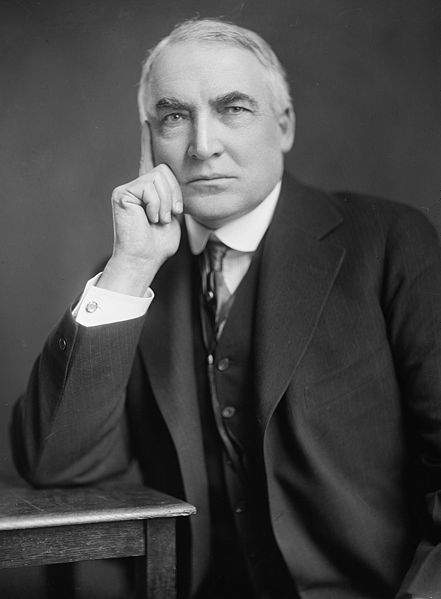IT'S OUT: Fascinating New Yorkers was released on July 26 and is available from Amazon and Barnes & Noble. Excellent reviews so far; see below.
The e-book version will be released in about a week and be available briefly at a bargain price. To get word of this, as well as giveaways and other news, sign up using the form in the sidebar on the right.
The e-book version will be released in about a week and be available briefly at a bargain price. To get word of this, as well as giveaways and other news, sign up using the form in the sidebar on the right.
For my other books, see BROWDERBOOKS following the post below.

Short biographical sketches of colorful people who lived or died in New York. A cardinal who led a double life, a serial killer, a baroness with a tomato-can bra, and a film star whose funeral caused an all-day riot. Plus Andy Warhol, Boss Tweed, J. P. Morgan and his purple nose, Al Sharpton, Ayn Rand, and Polly Adler, Queen of Tarts.
Reviews
"Fascinating New Yorkers by Clifford Browder was like sitting down with a dear friend and catching up on the latest gossip and stories. Written with a flair to keep the reader turning the pages, I couldn't stop reading it and thinking about the subjects of each New Yorker. I love NYC and this book just added to the list of reasons why, a must read for those who love NYC and the people who have lived there." Five-star NetGalley review by Patty Ramirez, librarian.
"Unputdownable." Five-star review by Dipali Sen, retired librarian.
"I felt like I was gossiping with a friend when reading this, as the author wrote about New Yorkers who are unique in one way or another. I am hoping for another book featuring more New Yorkers, as I couldn't put this down and read it in one sitting!" Five-star NetGalley review by Cristie Underwood.
WEIRD FACTS ABOUT THE U.S. PRESIDENTS
I’ve promised weird presidential facts, but let’s start with
some that aren’t particularly weird. Who
are the most popular U.S. presidents of all time? According to a 2014 poll of 162 members of
the American Political Science Association’s Presidents & Executive
Politics section, the top ten are as follows:
1.
Abraham Lincoln
(1861-1865)
2.
George Washington
(1789-1797)
3.
Franklin Delano
Roosevelt (1933-1945)
4.
Theodore (Teddy)
Roosevelt (1901-1909)
5.
Thomas Jefferson
(1801-1809)
6.
Harry Truman
(1945-1953)
7.
Dwight D. Eisenhower
(1953-1961)
8.
Bill Clinton
(1993-2001)
9.
Andrew Jackson
(1829-1837)
10.
Woodrow Wilson (1913-1921)
This was a 2014 poll of
experts, so the Donald was not included.
Obama was, but I think it too soon to judge him objectively.
My comment: regarding the top three, no criticism. Lincoln held the country together at the time
of its greatest crisis, and Washington for the most part stayed out of
politics, so as to give the new nation a unifying figure. As for Roosevelt, his administration saw the
beginning of Social Security and other vital New Deal legislation, and he saw
us through World War II. I say this even
though my father, a staunch Republican, raged incessantly against him and his
four terms, insisting that polio had left the man slightly demented, as
witnessed by the “Tinker Toys” – small objects he had accumulated over the
years -- visible on his presidential desk.
| FDR, just after signing the declaration of war on Japan. Why he's smiling I can't .imagine. Tinker Toys in the foreground. |
And who should be added to the presidential likenesses on
Mount Rushmore, joining Washington, Lincoln, Jefferson, and Teddy, the bumptious Roosevelt? Two-thirds of the scholars
queried said Franklin Delano Roosevelt.
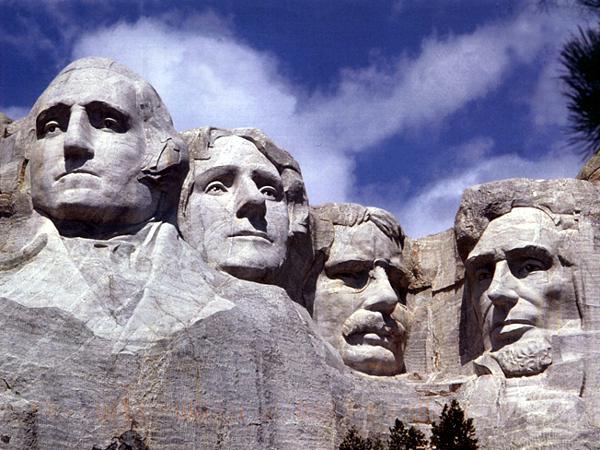 |
| Is there room for FDR? |
Teddy Roosevelt (#4) is controversial, since he was an
avowed imperialist and something of a bully (“Speak softly but carry a big
stick”), and a racist as well, believing in the superiority of the white
race. On the other hand, after charging
noisily up San Juan Hill in the Spanish-American War, as president he founded
our national park system and busted a lot of trusts. Still, I have a personal gripe against
him. Lamenting the fact that his younger
son was a bookworm and not at all sports-minded, my father spoke glowingly of Teddy
and how going out West and working there in the rough had made a man of
him. Feeling no need to go out West or
even, here in the sissified East, to throw a football, I nursed an ardent
desire to get a photo of Teddy, so I could hurl darts into his toothy grin.
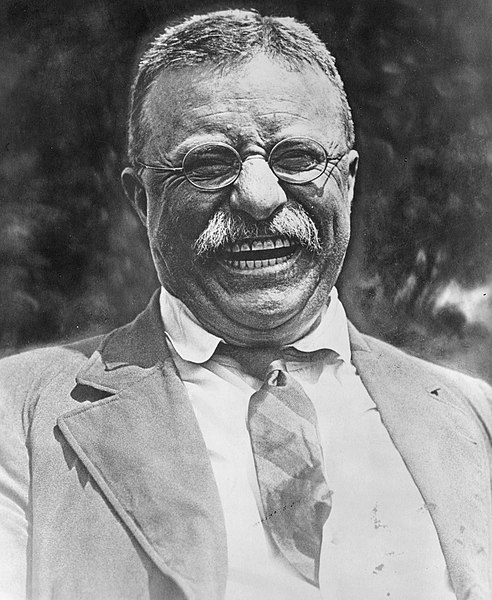 |
| Here is Teddy, my dreamed-of target. |
I consider Bill Clinton (#8) too recent to be judged
impartially, and acknowledge that Andrew Jackson (#9) has become
controversial. He squelched South
Carolina’s first attempt to secede, but was himself a slave owner and ordered
the removal of all native peoples from their ancestral lands to barren
reservations in the West. (Where, fortunately,
some of them were located on land where oil was later discovered, to their
sudden enrichment.)
And who did the scholars rate as the five worst
presidents? James Buchanan topped the
list.
1.
James Buchanan
(1857-1861)
2.
Warren G. Harding
(1921-1923)
3.
Andrew Johnson
(1865-1869)
4.
Franklin Pierce
(1853-1857)
5.
William Henry
Harrison (1841)
Buchanan rates #1 because, with Southern secession and the
Civil War looming, he did nothing to
prevent the catastrophe. Agreed, he only
hoped to get out of office before it happened.
But personally, I doubt if he or anyone could have prevented it.
 |
| Our worst president? I don't think so. Buchanan did no good, but little harm. |
Harding was a handsome man who, elected following World War I, preached “back to
normalcy,” thus invented a noun that, because of its provenance, I refuse to
use. (What’s wrong with “normality”?) His wife remarked memorably, “We’re just
folks.” He was a good party man of no
particular talent, interesting only because of his hanky-panky with a young
woman who later told the world. More to
the point, he was an honest man surrounded by crooks; because of the Teapot
Dome scandal, two of his cabinet went to prison.
Johnson was Lincoln’s successor, and that was a tough act to
follow. He wasn’t up to it, and
furthermore imbibed a bit too freely, but he had some mean characters to deal
with, senators determined to make the defeated South pay for its
disloyalty. A nasty time, all in all.
Pierce is one of my favorite presidents because he
accomplished so little that one hardly remembers him. Uncontroversial, because in his in short term
he did almost nothing at all. To date,
the only Vermonter to make it to the White House, unless you include Vermont-born Calvin Coolidge, who pursued his political career in Massachusetts.
 |
| Franklin Pierce. Looking Napoleonic or just scratching? |
Finally, I argue that William Henry Harrison doesn’t merit
this rating, since he caught a chill at his inauguration and a month later died
of pneumonia. He simply wasn’t in office
long enough (all of 31 days) to do anything at all.
To my surprise, the list does not include a president whom I
have always rated at or near the bottom: Ulysses S. Grant, who, like Harding, was personally honest but surrounded by crooks. Good generals don't always make good presidents.
Who are the three most overrated presidents? According to the scholars:
1.
John F. Kennedy
(1961-1963)
2.
Ronald Reagan
(1981-1989)
3.
Andrew Jackson
(1829-1837)
Kennedy is probably included
because of the enduring (and debatable) Kennedy mystique. How one feels about Reagan depends on your politics. And Jackson is included for reasons mentioned
above.
And the most underrated?
1.
Dwight D.
Eisenhower (1953-1961)
2.
George H.W. Bush
(1989-1993)
3.
Harry Truman
(1945-1953)
Eisenhower and Papa Bush I’m
not sure about, but certainly Harry Truman.
As FDR’s successor he too had a tough act to follow, but he grew in
stature and accomplished a lot as the nation transitioned from postwar euphoria
to the onset of the Cold War. A feisty
little guy and quite a scrapper, he astonished everyone by winning the 1948
election, trouncing Thomas Dewey, the Republican. Overconfident, Dewey thought he
could win by making vague, glowing statements and nothing more. Meanwhile Truman barnstormed around the country by rail, speaking from an observation car and convincing ordinary people that he was one of them, which he was. The Republican Chicago Tribune, which I grew up reading, announced Dewey's victory ... prematurely, and Truman (on the left below) made the most of it.
 |
I can't let go of this guy without including another famous photo of him as vice president in 1945. On top of the piano? Lauren Bacall.
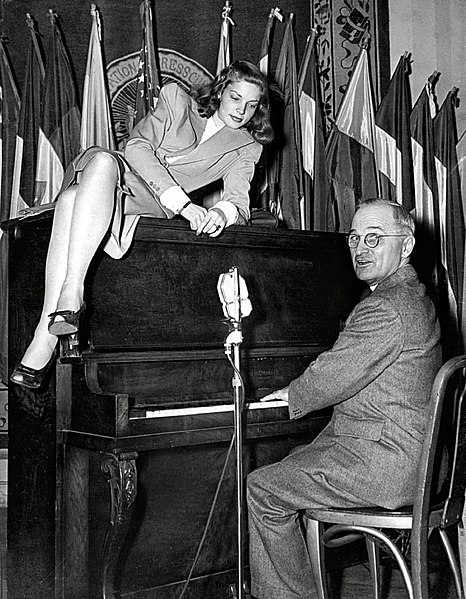
These rankings are relative and can change from year to year, Here are the top 10 as rated by 100 U.S. historians and biographers in a C-SPAN survey in July 2018:
1.
Abraham Lincoln
2.
George Washington
3.
Franklin Delano
Roosevelt
4.
Theodore
Roosevelt
5.
Dwight D.
Eisenhower
6.
Harry Truman
7.
Thomas Jefferson
8.
John F. Kennedy
9.
Ronald Reagan
10.
Lyndon B. Johnson
The survey included the top
20, with Barack Obama coming in at #12, and Bill Clinton, as yet untroubled by
the #Me Too Movement, at #15. Andrew
Jackson is demoted to #18.
These surveys targeted scholars immersed in presidential
lore. Why not ordinary citizens, you might
ask. Their opinions would surely differ
from the scholars’, but they could hardly be expected to appraise such distant
political nonentities as John Tyler or Millard Fillmore or Chester Alan
Arthur. So to include the full range of
chief executives, it’s best to stick with the experts.
And now for Weird Facts 1 (another set will follow). History buffs know that Harry Truman had once
worked as a haberdasher, and that Ronald Reagan had been an actor in Hollywood
films, but what about these occupations?
Which presidents held them before reaching the White House? (Answers below.)
1.
Licensed bar
tender.
2.
Apprentice
tailor.
3.
Mule driver.
4.
Hangman.
5.
Toy maker
(specifically, doll carriages).
6.
Shoe shiner and
goat herder.
7.
Chicken plucker
and carnival gaming booth.
8.
Lifeguard.
9.
Grocer and comic
book salesman.
(Source note: For Weird Facts
1 I am indebted to an online article, “The 17 weirdest jobs of US presidents,”
by Aine Cain, dated February 19, 2018.)
Answers to Weird Facts 1:
1.
Abraham
Lincoln. He and a partner ran a store
and bar in New Salem, Illinois.
2.
Andrew
Johnson. In his teens worked for his
mother in this capacity.
3.
James
Garfield. As an Ohio farm boy he drove
the mules hauling a cousin’s Erie Canal boat.
4.
Grover
Cleveland. As sheriff of Erie County,
New York, he personally hanged two criminals, rather than delegating the task
to someone else.
5.
Calvin
Coolidge. In high school he had a
weekend job making toys for a local toy company.
6.
Lyndon B.
Johnson. At age 9 he shined shoes during
summer vacation and later worked as a goat herder on an uncle’s farm.
7.
Richard
Nixon. He plucked and dressed chickens
for a local butcher while visiting family in Arizona, and later worked a “Wheel
of Fortune” gaming booth at a carnival.
8.
Ronald
Reagan. For seven summers he had a
summer job as lifeguard at Rock River, near Dixon, Illinois. In those seven years he saved 77 people from
the river’s swift current.
9.
Bill
Clinton. At age 13 he worked for a
grocer in Arkansas, and persuaded his boss to let him sell comic books, too,
and so raked in an extra $100.
And now for Weird Facts 2, which I have accumulated over the
years from sources too varied and remote for me to recall. See if you can identify these
presidents. (Again, answers below.)
1.
Being broad of
beam, he got stuck in the White House bathtub.
2.
When his term
ended, he refused to leave the White House until the staff found his
missing galosh.
3.
His wife smoked a
clay pipe in the White House.
4.
As president
elect, his life was thought to be in danger in Baltimore, while en route to
Washington, so they snuck him through Baltimore at night.
5.
Accused of having
fathered an illegitimate child, during his election he was taunted by the chant
“Ma! Ma!
Where’s my pa? / Gone to the White House, ha, ha, ha!”
6.
His inaugural
reception at the White House turned into a drunken brawl.
7.
As a senator he
had voted for Prohibition, but once it went into effect, he kept the White
House well stocked with liquor.
8.
The first
language he spoke was not English.
Answers to Weird Facts 2:
1.
William Howard Taft,
who weighed 350 pounds. Fortunately they
got him loose, so he could go on post-presidentially to become Chief Justice of
the Supreme Court. The story, however,
has been challenged.
2.
Calvin Coolidge,
who was notoriously frugal.
3.
Andrew Jackson,
whose backwoodsy wife scandalized Washington society. Whether they were even properly married was
questioned.
4.
Abraham Lincoln. In February 1861 the Pinkerton detective
agency learned of a Secessionist plot to assassinate him in Baltimore, where he
would change trains while on his way to Washington. So they had him secretly change trains in
Baltimore in the middle of the night and so proceed on to the capital.
5.
Grover
Cleveland. As the Democratic mayor of
Buffalo and governor of New York, he had implemented reforms and earned the
name Grover the Good. But during the
presidential election of 1884, when he was the Democratic candidate, it came
out that he had fathered an illegitimate child with a widowed seamstress, a
charge he did not deny, while insisting that he had helped the mother
financially. Despite the Republican
press’s taunting chant, he won the election in a close race, and the Democrats
then gleefully recited the chant back at the Republicans. But today Cleveland’s account of the affair
has been questioned; perhaps his conduct
was less than honorable after all.
6.
Andrew Jackson,
again. His White House reception for the
public on March 4, 1829, was thronged by a lot of ill-mannered supporters from
the West who guzzled liquor and destroyed furniture and china, causing their
host to flee through a back door or a window.
But what actually happened may have been exaggerated by Washington
society and his political enemies, who feared rule by the rabble.
7.
Warren G. Harding.
Technically he wasn’t breaking the law, since possessing and consuming alcohol
was not illegal, just producing, importing, transporting, or selling it. But how did he get the stuff? Through an acquaintance who had a permit
allowing him to obtain it for medical purposes; the acquaintance then passed it
on to Harding. Were the authorities
aware of this? Maybe, maybe not. Maybe they chose not to notice.
8.
Martin Van
Buren. He was born to a family of Dutch-speaking
Dutch Americans in Kinderhook, New York, and learned English in school. The only president for whom English was a second language.
I must confess that Calvin Coolidge has a warm place in my
heart. “The business of America is
business,” he famously announced. A
Vermonter who pursued a political career in Massachusetts, he was the epitome
of the tight-lipped New Englander and became known as Silent Cal. A woman seated next to him at a dinner once
addressed him, “Mr. Coolidge, you’re such a reticent man. I’ve bet a friend five dollars that I can
make you say more than two words.”
Replied Coolidge, “You lose.” He
may have cultivated this image deliberately, since he told an acquaintance that
the American people wanted a “solemn ass” as president, and he would do his
best to be one. In 1933, when humorist
Dorothy Parker was told that he had died, she reportedly said, “How can you
tell?” They don’t make ‘em like that
anymore.
Coming soon: Maybe "Who Killed Carlo Tresca?" Never heard of him? Neither had I until recently. But the cast of suspects is astonishing. Few victims could lay claim to such a roster of killers.
If you love the city (or hate it), this may be the book for you. An award winner, it sold well at BookCon 2017 and 2018.
Review
"If you want wonderful inside tales about New York, this is the book for you. Cliff Browder has a way with his writing that makes the city I lived in for 40 plus years come alive in a new and delightful way. A refreshing view on NYC that will not disappoint." Five-star Amazon customer review by Bill L.
Available from Amazon and Barnes & Noble.
For readers who like historical fiction and a fast-moving story.

"A real yarn of a story about a lovable pickpocket who gets into trouble and has a great adventure. A must read." Five-star Amazon customer review by nicole w brown.
"This was a fun book. The main character seemed like a cross between Huck Finn and a Charles Dickens character. I would recommend this." Four-star LibraryThing review by stephvin.

"I am glad that I have read this book as it goes into great detail and the presentation is amazing. The Author obviously knows his stuff." Four-star LibraryThing early review by Moiser20.
New release; available from Amazon and Barnes & Noble.
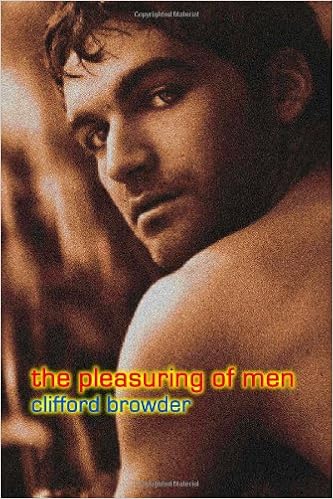
Reviews
"At times amusing, gritty, heartfelt and a little sexy -- this would make a great summer read." Four-star Amazon customer review by BobW.
"Really more of a fantasy of a 19th century gay life than any kind of historical representation of the same." Three-star Goodreads review by Rachel.
Available from Amazon and Barnes & Noble.
 |
| President Coolidge, being presented with a statue of a Boy Scout. Fifteen hundred Scouts made a annual visit to the White House to meet the president. |
Coming soon: Maybe "Who Killed Carlo Tresca?" Never heard of him? Neither had I until recently. But the cast of suspects is astonishing. Few victims could lay claim to such a roster of killers.
BROWDERBOOKS
All books are available online as indicated, or from the author.
1. No Place for Normal: New York / Stories from the Most Exciting City in the World (Mill City Press, 2015). Winner of the Tenth Annual National Indie Excellence Award for Regional Non-Fiction; first place in the Travel category of the 2015-2016 Reader Views Literary Awards; and Honorable Mention in the Culture category of the Eric Hoffer Book Awards for 2016. All about anything and everything New York: alcoholics, abortionists, greenmarkets, Occupy Wall Street, the Gay Pride Parade, my mugging in Central Park, peyote visions, and an artist who made art of a blackened human toe. In her Reader Views review, Sheri Hoyte called it "a delightful treasure chest full of short stories about New York City."
If you love the city (or hate it), this may be the book for you. An award winner, it sold well at BookCon 2017 and 2018.
 |
"If you want wonderful inside tales about New York, this is the book for you. Cliff Browder has a way with his writing that makes the city I lived in for 40 plus years come alive in a new and delightful way. A refreshing view on NYC that will not disappoint." Five-star Amazon customer review by Bill L.
Available from Amazon and Barnes & Noble.
2. Bill Hope: His Story (Anaphora Literary Press, 2017), the second novel in the Metropolis series. New York City, 1870s: From his cell in the gloomy prison known as the Tombs, young Bill Hope spills out in a torrent of words the story of his career as a pickpocket and shoplifter; his brutal treatment at Sing Sing and escape from another prison in a coffin; his forays into brownstones and polite society; and his sojourn among the “loonies” in a madhouse, from which he emerges to face betrayal and death threats, and possible involvement in a murder. Driving him throughout is a fierce desire for better, a persistent and undying hope.
For readers who like historical fiction and a fast-moving story.

Reviews
"A real yarn of a story about a lovable pickpocket who gets into trouble and has a great adventure. A must read." Five-star Amazon customer review by nicole w brown.
"This was a fun book. The main character seemed like a cross between Huck Finn and a Charles Dickens character. I would recommend this." Four-star LibraryThing review by stephvin.
Available from Amazon and Barnes & Noble.
3. Dark Knowledge (Anaphora Literary Press, 2018), the third novel in the Metropolis series. Adult and young adult. A fast-moving historical novel about New York City and the slave trade, with the sights and sounds and smells of the waterfront.

The back cover summary:
New York City, late 1860s. When young Chris Harmony learns that members of his family may have been involved in the illegal pre-Civil War slave trade, taking slaves from Africa to Cuba, he is appalled. Determined to learn the truth, he begins an investigation that takes him into a dingy waterfront saloon, musty old maritime records that yield startling secrets, and elegant brownstone parlors that may have been furnished by the trade. Since those once involved dread exposure, he meets denials and evasions, then threats, and a key witness is murdered. Chris has vivid fantasies of the suffering slaves on the ships and their savage revolts. How could seemingly respectable people be involved in so abhorrent a trade, and how did they avoid exposure? And what price must Chris pay to learn the painful truth and proclaim it?
Early reviews
"A lively and entertaining tale. The writing styles, plot, pace and character development were excellent." Four-star LibraryThing early review by BridgitDavis.
"A lively and entertaining tale. The writing styles, plot, pace and character development were excellent." Four-star LibraryThing early review by BridgitDavis.
"At first the plot ... seemed a bit contrived, but I was soon swept up in the tale." Four-star LibraryThing early review by snash.
"I am glad that I have read this book as it goes into great detail and the presentation is amazing. The Author obviously knows his stuff." Four-star LibraryThing early review by Moiser20.
4. The Pleasuring of Men (Gival Press, 2011), the first novel in the Metropolis series, tells the story of a respectably raised young man who chooses to become a male prostitute in late 1860s New York and falls in love with his most difficult client.
What was the gay scene like in nineteenth-century New York? Gay romance, if you like, but no porn (I don't do porn). Women have read it and reviewed it. (The cover illustration doesn't hurt.)
What was the gay scene like in nineteenth-century New York? Gay romance, if you like, but no porn (I don't do porn). Women have read it and reviewed it. (The cover illustration doesn't hurt.)

Reviews
"At times amusing, gritty, heartfelt and a little sexy -- this would make a great summer read." Four-star Amazon customer review by BobW.
"Really more of a fantasy of a 19th century gay life than any kind of historical representation of the same." Three-star Goodreads review by Rachel.
"The detail Browder brings to this glimpse into history is only equaled by his writing of credible and interesting characters. Highly recommended." Five-star Goodreads review by Nan Hawthorne.
Available from Amazon and Barnes & Noble.
© 2018 Clifford Browder
